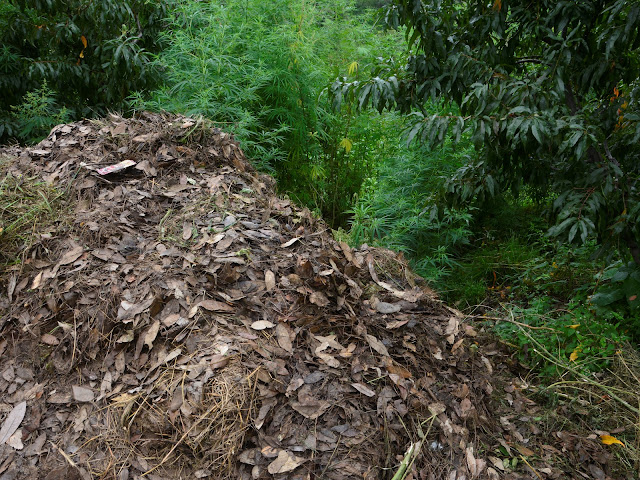The days were going very hectic when I got an invite for the experiential stay at Aahana. It is a good opportunity to take a break from my hectic schedule, I thought, and decided to head to one of the finest Luxury Eco-resorts in Corbett. And, no surprise, I had the most calm and dreamy time of my life!
RELAXING ENVIRONS
Spread over a sprawling 11 acres amidst the wild environs of Corbett Tiger Reserve, it is a perfect place to unwind. The morning walks, simple yet delicious meal served with lots of love and care, the cozy afternoon siesta, the evenings spent by the pool side listening to mild tunes on guitar and the mesmerizing star studded nights - all of this made my stay perfect!
 |
| The cool seating arrangement by the pool |
The property overlooks the Bijrani forest and is ideal for bird watching. More than 173 bird species frequent the property. Just sitting in my balcony I could see more than 15 varieties of birds.
Morning walk in the campus breathing fresh air laden with lemony scent of citronella, listening to sweet bird songs and cherishing the variety of tree plantations with more than 200 species, I was refreshed to the core.
 |
| A Well Planned Walking Pathway in the Midst of Nature |
ECOLOGICALLY RESPONSIBLE RESORT
Being a responsible traveler, I was thrilled to know it's an ecologically responsible resort. And its not just a claim I saw many such initiatives in the property:
- The water conservation and waste management system.
The water treatment plant here is one of the biggest of its kind in Asia. The plant effectively recycles waste water and is used for gardening etc. The pathways have been constructed in such a way that it allows rainwater to seep in and thus maintaining the underground water table.
 |
| The Water Treatment Plant - Biggest of its kind in Asia |
- The Waste Management System
All the biodegradable waste generated within the property is decomposed and utilized as manure for gardens and organic farming.
The non-biodegradable waste is collected, segregated and sent for recycling, maintaining the ecological balance within the resort. I was highly impressed to see the way my breakfast for the journey was packed in paper bags are made of used newspapers and biodegradable plates made of Areca Nut Palm leaf.
- The Organic Garden
There are gardens that grow organic vegetables, spices and medicinal plants and herbs as well that are used for treatments and therapies in the spa.
It was interesting to see how the cow urine mixed with neem leaves is used as pesticide for the plantations.
COMFORTABLE STAY, DELICIOUS FOOD AND CORDIAL STAFF
Last but not the least, the comfortable well equipped rooms with every minute detail taken into consideration. Like umbrellas in the room, a disposable bag in the bathroom and the usual - robes, slippers, locker and other required accessories.
 |
| Comfortable Room Opening Up to The Forest |
Another highlight of the stay was simple delicious food cooked from fresh seasonal vegetables locally sourced or grown in in-house organic kitchen garden. Got the taste of local flavors in their Kumaoni cuisine.
 |
| The Multi Cuisine Restaurant |
Its good to know that the resort support locals. Out of 105 staff members, 90% are locals. And all of them extremely hospitable.





